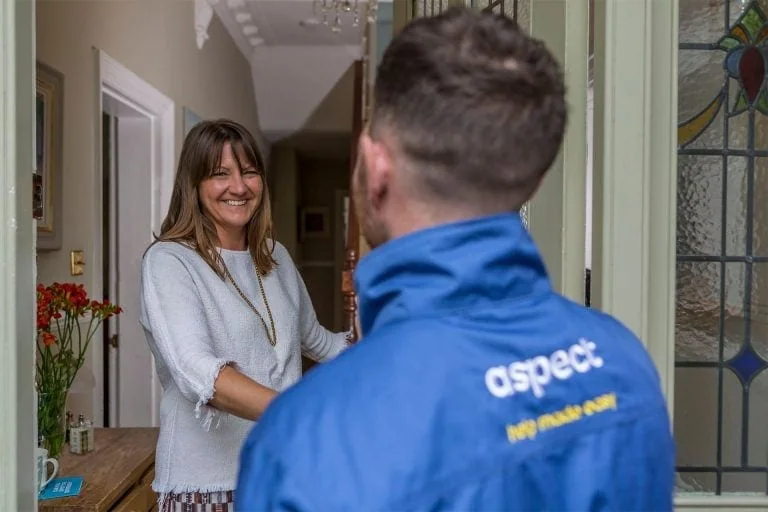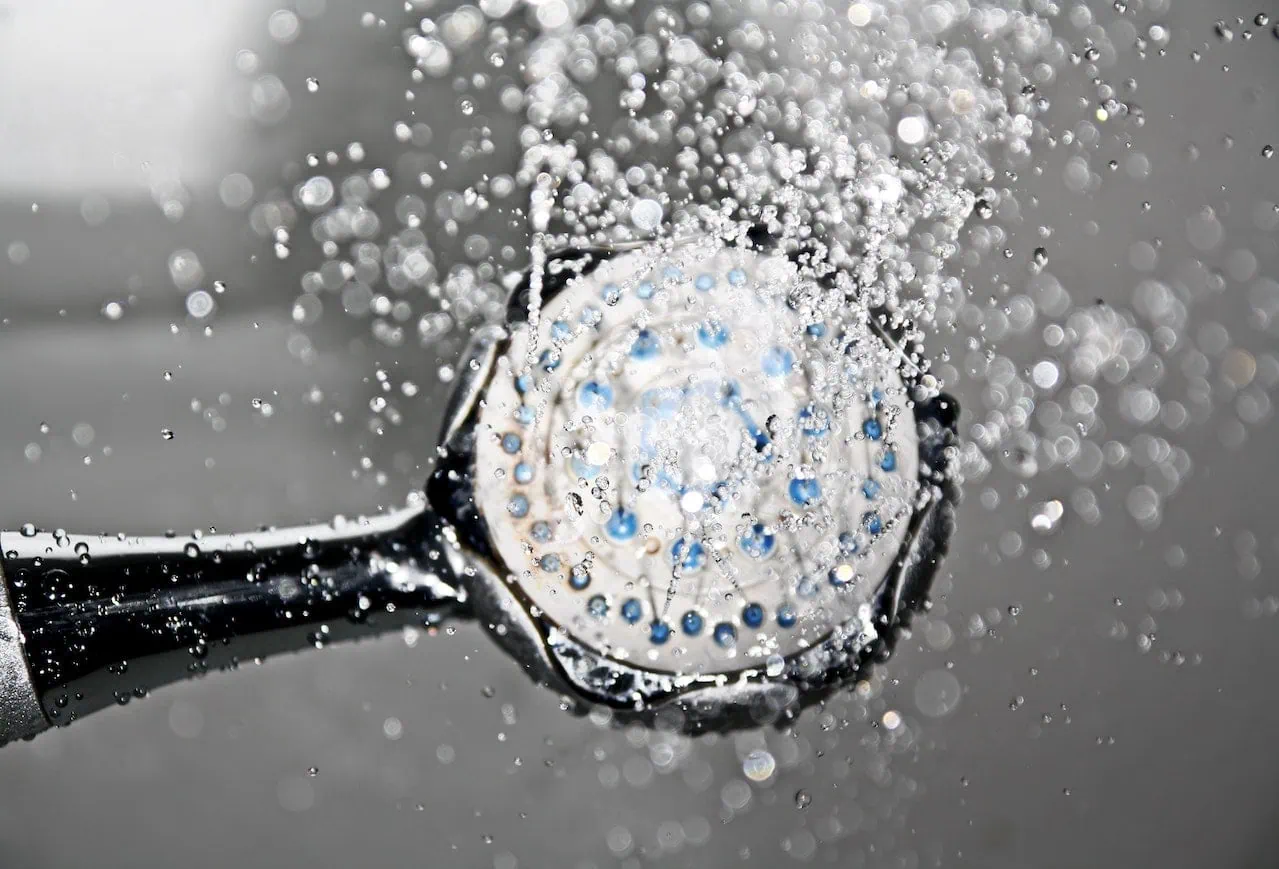Hard Water Areas in the UK – Here is the list
Many people may be unaware of the hardness of the water in their homes, despite the impact it is having on their day-to-day lives. From the appearance of your drinking glasses in your cupboards and the suds in your washing machine to how your skin feels after washing your hands or having a shower, these unnoticed things can all be boiled down to how many calcium and magnesium ions are in your water supply.
While this isn’t usually a health hazard, the most significant impact that hard water can have is on your plumbing, central heating, and drainage. Scale can build up anywhere, with the potential to damage both cold and hot systems, including boilers, dishwashers and washing machines – causing corrosion, reduced flow rate and eventually blockages.
If particles of scale become suspended in the system and find their way into valves, they can damage them and cause leaks. Scale build-up causes damage to plumbing parts, such as flush mechanisms, pumps, and taps, meaning repairs and maintenance will become necessary.
In hot systems, scale building up on heating elements and inside radiators creates inefficiency in two ways: the overworking systems are more liable to breakdowns, and more energy is used in the heating process. This will mean that you will need to spend more on heating your property, which many are already struggling to afford right now, with energy bill costs higher than ever in the cost-of-living crisis.
In light of recent government policy, and news that the sale of gas boilers will be limited in the future, trying to extend the longevity of your boiler is in your best interest, to avoid having to change to potentially more expensive options and early replacement costs.
So, it’s important that you address the hard water in your home as soon as possible, to avoid spending unnecessary money – especially since damage claims caused by leaks in poorly maintained pipes might not be paid by insurance companies.
What can you do about the hardness of your water?
You can take measures to prevent these issues, ensuring the hot and cold systems within your property remain functional, maintain their efficiency and longevity, and require less maintenance.
If you live in an area with hard or very hard water, purchasing a water softener or water conditioner may solve these problems for you – and it will be much more affordable than paying for ongoing boiler repairs or locating and fixing any plumbing issues.
When our expert plumbers fit a water softener or conditioner, they are usually fitted on the water supply pipe after the main drinking tap. That way, you can drink unsoftened water from the mains supply.

Book a qualified plumber
- One hour priority attendance
- On call 24/7 for plumbing emergencies
- Half-hour rates from £42.75 + VAT
- £10 off when you book online
The UK areas with the hardest water
Aspect has set out to discover which UK counties and London Boroughs have the hardest water.
To do this, we’ve used online tools to look at the water hardness score for each county and London Borough. These figures were then categorised into either soft, moderate, hard or very hard.

The London Boroughs with the hardest water
| London Borough | Water Hardness figure (ppm) | Category |
| Barnet | 327 | Very hard |
| Enfield | 315.5 | Very hard |
| Harrow | 304.8 | Very hard |
| Barking and Dagenham | 301 | Very hard |
| Kingston upon Thames | 295.8 | Very hard |
| Westminster | 295.3 | Very hard |
| Brent | 292.5 | Very hard |
| Richmond upon Thames | 291.6 | Very hard |
| Havering | 290 | Very hard |
| Hounslow | 288 | Very hard |
| Hillingdon | 285.8 | Very hard |
| Greenwich | 284 | Very hard |
| Redbridge | 283 | Very hard |
| Ealing | 281 | Very hard |
| Newham | 278 | Very hard |
| Haringey | 276 | Very hard |
| Waltham Forest | 276 | Very hard |
| Lewisham | 275 | Very hard |
| Hammersmith and Fulham | 274 | Very hard |
| Kensington and Chelsea | 271 | Very hard |
| Wandsworth | 271 | Very hard |
| Croydon | 271 | Very hard |
| Islington | 266 | Very hard |
| Hackney | 266 | Very hard |
| Merton | 261 | Very hard |
| Bromley | 257.9 | Very hard |
| Sutton | 252.8 | Very hard |
| Tower Hamlets | 252 | Very hard |
| Southwark | 251 | Very hard |
| Camden | 245.7 | Hard |
| Lambeth | 236 | Hard |
| Bexley | 219.3 | Hard |
All London Boroughs were found to have either hard or very hard water, with the majority being categorised as very hard.
The South East of the UK has predominantly chalk and limestone geology, which contributes to water hardness as it leads to high levels of calcium and magnesium in the water supply.
Of the 32 London Boroughs analysed, 9% had hard water, and 91% had very hard water. There were no London Boroughs which had either moderately hard or soft water.
The average water hardness score among the London Boroughs was 276, which falls into the very hard category.
The hardest water in London can be found in Barnet, with a score of 327, followed by Enfield, 315.5, and Harrow, 304.8.
Meanwhile, the London Borough with the softest water was Bexley with a score of 219.3, Lambeth with 236, and Camden with 245.7.
The UK counties with the hardest water
| County | Water Hardness figure (ppm) | Category |
| Kent | 343 | Very hard |
| Cambridgeshire | 341 | Very hard |
| Gloucestershire | 341 | Very hard |
| Northamptonshire | 320 | Very hard |
| West Sussex | 319 | Very hard |
| Essex | 310 | Very hard |
| Bedfordshire | 300 | Very hard |
| Warwickshire | 300 | Very hard |
| Buckinghamshire | 286 | Very hard |
| Norfolk | 286 | Very hard |
| Hertfordshire | 280 | Very hard |
| Lincolnshire | 280 | Very hard |
| Nottinghamshire | 280 | Very hard |
| Oxfordshire | 280 | Very hard |
| Derbyshire | 278 | Very hard |
| Greater London | 274 | Very hard |
| Northumberland | 274 | Very hard |
| Tyne & Wear | 274 | Very hard |
| Dorset | 272 | Very hard |
| Shropshire | 270 | Very hard |
| East Sussex | 259 | Very hard |
| Rutland | 259 | Very hard |
| Somerset | 250 | Hard |
| Wiltshire | 250 | Hard |
| Hampshire | 249 | Hard |
| County Durham | 240 | Hard |
| Isle of Wight | 240 | Hard |
| South Gloucestershire | 228 | Hard |
| Suffolk | 220 | Hard |
| East Riding of Yorkshire | 219 | Hard |
| Leicestershire | 214 | Hard |
| Surrey | 214 | Hard |
| Worcestershire | 214 | Hard |
| South Yorkshire | 210 | Hard |
| North Somerset | 200 | Moderate |
| Staffordshire | 200 | Moderate |
| Bristol | 195 | Moderate |
| Devon | 185 | Moderate |
| Cornwall | 180 | Moderate |
| West Midlands | 180 | Moderate |
| Herefordshire | 179 | Moderate |
| Berkshire | 172 | Moderate |
| Merseyside | 170 | Moderate |
| Cheshire | 159 | Moderate |
| North Yorkshire | 157 | Moderate |
| Lancashire | 143 | Moderate |
| West Yorkshire | 129 | Moderate |
| Greater Manchester | 110 | Moderate |
| Cumbria | 28.69 | Soft |
Of the 49 counties which were analysed, only 2% had soft water, 29% had moderately hard water, 24% had hard water, and 46% had very hard water.
Only one county out of the 49 which were analysed, Cumbria, was found to have water which can be categorised as soft. This is because there is not much chalk to dissolve into the water in that area, resulting in a lower mineral content, as well as the heavy use of reservoirs in the area.
Many other Northern areas, including the West and North of Yorkshire, Manchester, Cheshire, and Lancashire, were found to have moderately hard water for the same reasons.
Meanwhile, South Yorkshire and East Yorkshire were found to have hard water. The level of water hardness tends to increase the further South East you go, and is known to vary across Yorkshire, due to the geology of the area.
Other counties which were found to have hard water include Leicestershire, Surrey, Worcestershire, Suffolk, South Gloucestershire, County Durham, Isle of Wight, Hampshire, Somerset and Wiltshire.
Many of the counties which were found to have very hard water, including Greater London, Dorset, Hertfordshire, and Essex, are in the Southern region of the UK, particularly in the South East, due to the chalk and limestone which is found in most of that area of the country.
Kent, the furthest South East county in the UK, has the highest water hardness score, 343, which also makes it the area of the UK with the hardest water overall.
James Hays, Technical Manager of Plumbing, Heating and AC at property maintenance experts Aspect, said: “While hard water isn’t usually a risk to your health, it can have a significant effect on plumbing fixtures, causing corrosion, damage and reduced functionality, and increasing the risk of water leaks.
“The vast majority of us live in hard water areas, where the bedrock is made of sedimentary rocks like limestone, chalk, flint and sandstone. The South East of the UK is mainly made up of chalk and limestone regions and as a result, has the hardest water. This can be seen in the findings of our research, with areas in the South East of the UK, such as Kent, Cambridgeshire, and London, all scoring highly.
“The good news is that there are measures that you can take to help protect your plumbing fixtures from these issues, ensuring they remain both functional and visually appealing. If you live in an area with hard or very hard water, purchasing a water softener may solve these problems for you, by replacing the hardness in the water with sodium ions. It is essential that you make sure that it is installed by a qualified plumber, to make sure that it is done correctly and safely.”
Areas we cover

Our plumbers are available throughout Greater London and the Home Counties. Our service area includes Berkshire, Buckinghamshire, Essex, Hertfordshire, Kent, and Surrey. Use our postcode checker to see instantly if we cover your area.
If you need a plumber outside of this coverage area, we may still be able to help. Our team will check availability and see if one can be scheduled for your location.
Call or submit a callback request, and a member of our team will be in touch with you.
Was this article helpful?
Think we could improve this article? Please let us know